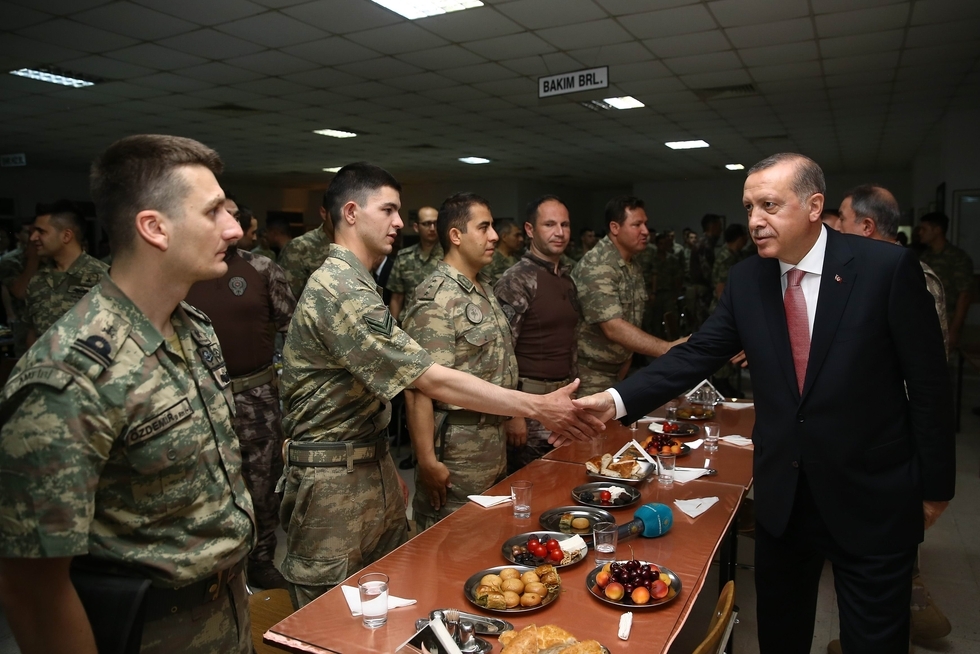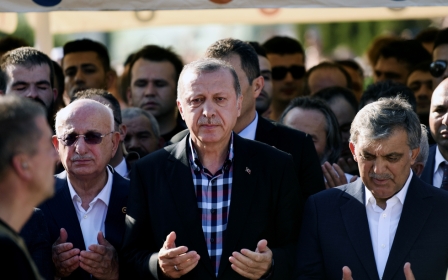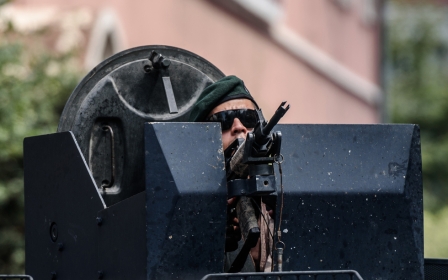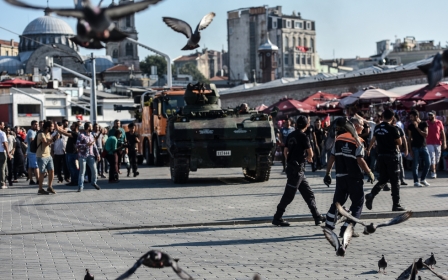Turkish colonel's daughter defends father over coup allegations

The daughter of a general detained on Saturday and later arrested for his alleged involvement in the attempted coup in Turkey has spoken out on social media, claiming her father actually opposed those plotting the coup.
Betul Sercan, daughter of Colonel Gurcan Sercan, gendermerie chief of Istanbul province, tweeted that her father rebuffed orders to join the putsch and is now caught up in events as thousands of people are being arrested.
“My father Col. Gurcan Sercan is a Turkish officer who has served honourably for years,” she wrote.
“On the night of the attempt my father, who has served the state for years, received orders to participate in the coup, told them to 'f**k off' and was worried about it all night.”
“And now because of some bastards and dishonourable people he has been arrested on allegations of being a member of the parallel state.”
In her tweets, she pointed out the irony that her father was accused of being involved in an ultra-nationalist coup plot in 2009 that the supporters of Fethullah Gulen - the man whom the Turkish government says is responsible for Friday's coup - are thought to have quashed.
“In 2009, the parallels (Gulenists) accused him of being part of Ergenekon and he spent years in courtrooms,” she wrote.
“When my brother was admitted to the War Academy, they didn’t leave him in peace either. The parallels tortured my brother in every possible way and he quit the academy as a result.”
Turkish state media reported that 103 generals and admirals had been arrested in response to the coup attempt among more than 7,500 people thought to have been detained in total since Friday.
A list seen by Midde East Eye on Monday appeared to show political and military figures who had been singled out to take over the running of the government if the coup was successful.
Gurcan Sercan's name is among those listed, but it is unknown whether he was aware that he was among those listed or whether the list had been prepared prior to the discussion in which his daughter alleged that he had refused to join the coup.
MEE contacted Betul for comment, but had not responded at the time of publication.
Twitter users responded to Betul Sercan's defence of her father with both statements of support and condemnation.
"Your father was my commander in Sirnak," said one user. "I know the type of man he was. The truth will prevail in the end. Have patience.
HIstory of coups
Turkey has a long history of military coups attempts, most of them successful.
The rise to power of the Justice and Development party (AKP) and now President Recep Tayyip Erdogan in 2002, however, led many to proclaim the age of coups over as the party moved to undercut the military’s power and its influence on politics.
Deep antagonisms have long existed between the army, long seen as upholding the secular nationalist ideology of founder of the republic, Mustafa Kemal Ataturk, and Islamist-leaning parties like the AKP and its predecessor the Welfare Party, which was forced out of government by the army in 1997.
In 2009, the AKP-led government undertook a major purging of the military after it accused a faction, named Ergenekon, of being involved in an ultra-nationalist plot to overthrow the government - the same plot in which Betul Sercan said her father was accused of being involved.
At the time, Gulen and his supporters were allies of the ruling AKP and it is believed that Gulenists in key positions in the police and judiciary were heavily involved in pushing the Ergenekon cases towards conviction.
Most commentators have generally viewed the Ergenekon plot as having finally ended the military's involvement in civilians politics.
But some analysts have suggested that Erdogan began moving closer to the military after a public falling out with Gulen years later over the latter's involvement in exposing alleged corruption cases involving the then prime minister and other cabinet ministers.
Although around 275 people were convicted in the Ergenekon case, all of those convictions were later quashed in April 2016 after the Turkish High Court of appeals said that it was unproven that Ergenekon actually existed.
Some analysts at the time suggested that Erdogan had been attempting to mend relations between his government and the army in the wake of the resumption of violence between the Turkish state and Kurdish militants in the southeast.
“The ruling of the High Court of Appeals is the last and a highly important symbolic link in the chain of developments that pointed to an Erdogan-military alliance,” Cengiz Candar, a scholar at the Stockholm University Institute of Turkish Studies, wrote in Al-Monitor.
He said that the "evolution of the Kurdish issue", Turkish involvement in the Syrian war and the AKP-Gulen split "incrementally but surely brought the military back to be a politically influential player".
New MEE newsletter: Jerusalem Dispatch
Sign up to get the latest insights and analysis on Israel-Palestine, alongside Turkey Unpacked and other MEE newsletters
Middle East Eye delivers independent and unrivalled coverage and analysis of the Middle East, North Africa and beyond. To learn more about republishing this content and the associated fees, please fill out this form. More about MEE can be found here.




